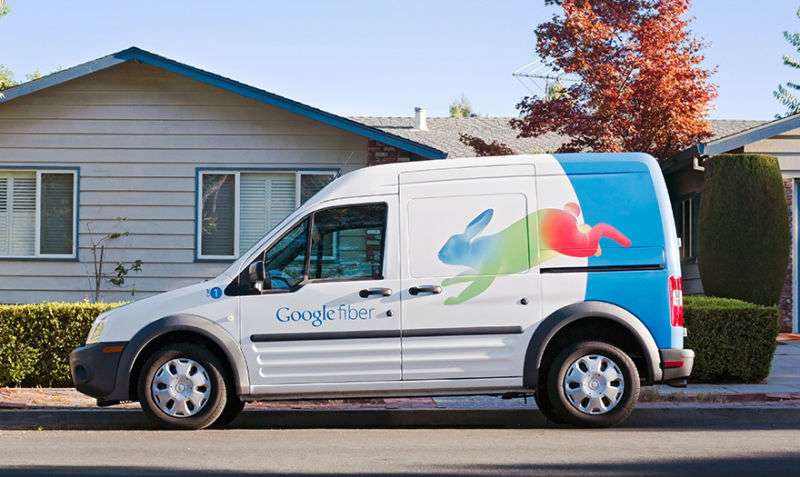
Google Fiber ends $50, 100Mbps plan, but 1Gbps is still $70 with no data cap

Google Fiber has stopped offering its $50-per-month, 100Mbps Internet plan to new customers, leaving its gigabit service as the only option available to people who weren’t grandfathered into the cheaper plan.
On the plus side, Google Fiber has still never raised the $70-per-month price of its gigabit plan since beginning operations in November 2012, a rarity in an industry in which incumbent ISPs routinely raise prices and tack on hidden fees because they face little competition.
“We’re going all in on a gig,” Google Fiber said in its announcement yesterday. “We will no longer offer a 100Mbps plan to new customers.”
The 100Mbps plan, which has been offered since at least 2016, would still be useful to many customers who want to save $20 a month. While gigabit connections provide faster uploads and downloads, streaming services don’t yet require that much bandwidth. For example, Google recommends 35Mbps to use its Google Stadia game-streaming service at the maximum settings including 4K resolution, high dynamic range (HDR), and 60 frames per second (fps) with 5.1 surround sound. Netflix recommends a 25Mbps connection for 4K video, though its 4K videos generally stream at about 15Mbps. For basic Web browsing and a couple of simultaneous 4K streams, 100Mbps should be enough.
For Google Fiber, eliminating the $50 plan will boost average revenue per customer, though people who already signed up for the $50 service will apparently keep getting it at the same price.
“[E]ven if you don’t think you need a gig now, we think you will in the very near future: Internet usage in US households is growing exponentially,” Google Fiber’s announcement said. “With a gig, we’ll give you plenty of room to grow.” With gigabit speeds, “you’re able to use all your connected devices at home at the same time,” the company also said.
Another thing that hasn’t changed since 2012 is that Google Fiber still doesn’t apply data caps to its service. But there are plenty of people in the United States who would like to sign up for Google Fiber and can’t get it because the ISP hasn’t expanded as far its initial ambitions suggested.
Google Fiber announced it would mostly stop expanding fiber service in 2016. Google’s fiber construction encountered various problems over the years, such as incumbent ISPs limiting access to utility poles and filing lawsuits against cities that tried to help Google Fiber gain quicker access to those poles. There was also Google Fiber’s failed experiment with nano-trenching that ended with the ISP shutting down its network in Louisville and paying the city $3.8 million to remove the exposed fiber cables left behind by the company.
Google broadband is available in 18 metro areas, partly thanks to the company’s 2016 acquisition of Webpass, which offers high-speed wireless home Internet. Webpass charges $60 a month (or just $45.83 a month with a one-year contract) for speeds that vary by location, ranging from 100Mbps to 1Gbps.
Google’s Webpass metro areas are Chicago; Denver; Miami; Oakland; San Diego; San Francisco; and Seattle. The fiber areas are Atlanta; Charlotte; Kansas City; Nashville; Orange County, California; San Antonio; Austin; Huntsville; Provo; Salt Lake City; and The Triangle, North Carolina. The service’s availability is limited in each city, though.




